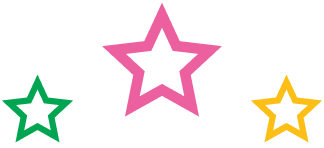
Participants of the Znanie.Pervye Marathon Discussed International Contacts in Science and Education With Experts From Thailand, Brazil, Turkey and Russia

A panel discussion on "Science — Education — Cooperation: International Dialogue" was held on March 5 at the educational marathon Znanie.Pervye of the Russian Society "Znanie" within the World Youth Festival in Sirius. Experts from Thailand, Brazil, Turkey and Russia took part in the discussion of the topic, which is relevant for young people in many countries. The meeting was held in the Belgorod pavilion of the City of World Youth and presented its participants many new opportunities for interaction both at the level of educational associations and through the development of personal ties.
In the digital age, science and education provide more and more opportunities for international dialog. They should be used, because the success of any scientific discovery lies in the cooperation of efforts and knowledge. Foreign and Russian specialists spoke about new perspectives of international scientific and educational communication at the marathon Znanie.Pervye.
The discussion brought together: Professor Nimnual Piewtchogngam, Chairman of the Committee of the Joint International Chamber of Commerce of the Kingdom of Thailand, Doctor of Science, Vicente Barrientos (Brazil), Chairman of the Coordinating Council of the BRICS Joint Center for Business Cooperation (JCBC), Fahrettin Gozet (Turkey), President of the International Commonwealth of Camps (ICF), and Valery Kostin (Russia), a member of the International Commonwealth of Camps (ICF). The discussion was moderated by Professor Alexander Gorbatov, Chairman of the Education and Science Committee of the Association "Business Center for CIS Economic Development", Doctor of Technical Sciences.
As it was noted during the discussion, the growing size of the BRICS countries and the strong potential of their educational systems offer great opportunities for the exchange of experience, both among the faculty of educational institutions and among students.
An important aspect for enhancing such interaction is to support the development of camps for children and youth as a unique format for out-of-school learning and socialization. Fahrettin Gozet elaborated on this.
"Russia is the country that ranks first in the number of children's camps. Such camps include Artek, Orlyonok, Smena and Ocean. When I visited Sochi after the Olympic Games, I was very impressed by the idea of the Sirius camp, the fact that all these talented and hardworking young people had a platform to come together. I told about this camp in different countries all over the world, because it is a great project," said Fahrettin Gozet.
Vicente Barrientos drew attention to the importance of continuous self-development, expansion of knowledge and skills, including through the study of foreign languages.
"I was born and raised in Brazil, in a multilingual environment, I went to school there with two languages, graduated with four and university with six. As it turns out, there is nothing complicated about it, no magic, just a love for the subject of study and a desire to learn something new. Since then, I have spent 30 years in the education system, precisely because it was interesting to interact with students whose eyes were burning with the desire to learn something new," said Vicente Barrientos.
Nimnual Piewtchogngam, referring to her experience as the head of an association of industrialists and entrepreneurs, emphasized the importance of developing various mechanisms of interaction in the educational environment.
"In our organization, we're always looking for common ground, and it's important, necessary for young people too. We live in an interconnected world, where no country lives on its own. It took me about 20 hours to get to Russia, but it was worth it because here I can share my experience and we can discuss problems together", noted Nimnual Piewtchogngam.
Elena Lyapuntsova, participant of the meeting, Chairperson of the Coordinating Council of the interregional public organization "League of Higher School Teachers", asked what real steps could be taken to increase the level of interaction between the educational communities of the BRICS countries. One specific solution was offered by Vicente Barrientos.
"I have an idea to create a country-graphic journal on the BRICS states. For example, with portraits of individual Russian regions, their economy, climate, education, science and culture. When a foreigner reads about the Ivanovo region, for example, they will better understand what they can get from studying in the country. Thus, we will popularize both our countries and education in them," the speaker suggested.
Pavel, a student of a Belarusian conservatory, inquired about the possibilities of expanding interstate student exchanges, including cultural specialties. The answer to his question was given by Valery Kostin, who reminded that for many years Russia has been actively engaged in the exchange of student delegations with various foreign countries — from Belarus and Kazakhstan to the USA, Canada and Australia — on the basis of leading general education camps, including Artek.
"Now due to known events a lot of things are frozen, but we still try to continue this work, but with Mexico, India, China, Mongolia. Because the nations of the world still have a desire to cooperate with us, and it is important for us to meet that demand. I know that there is continued contact through the League of Higher Education Teachers as well as the International Camp Commonwealth. By the way, the latter may be useful to you personally as a conservatory student. You can come to a Chinese camp and teach children to play musical instruments that are new to them," said Valery Kostin.
The discussion took place at the educational marathon Znanie.Pervye as part of the thematic track "Saving the Family for Future Generations". Also on March 5, the fourth day of the marathon, this track included many distinguished speakers, including Maria Lvova-Belova, Presidential Ombudsman for Children's Rights, Denis Pushilin, Head of the Donetsk People's Republic, Dmitry Artyukhov, the Governor of the Yamalo-Nenets Autonomous Area, Herman Gref, Chairman of the Management Board of Sberbank, Milos Bikovich, Serbian and Russian actor, Lilia Abramova, presenter, journalist, blogger (Tatarka FM), singer and TV presenter Olga Buzova and others.
The Russian Society "Knowledge" is the general partner of the educational program of the World Youth Festival. The educational marathon Znanie.Pervye of the Russian Society "Knowledge" is one of the main events of the educational program. Marathon takes place in Sirius from March 2 to 6 and covers six sites of the World Youth City: WYF International Airport, Yamal, Nizhny Novgorod, Kazan, Belgorod, and Moscow pavilions. The tracks of the marathon are in line with the Festival: "Responsibility for the fate of the world", "Multinational unity", "A world of opportunity for everyone", "Saving the family for future generations" and "We stand together with Russia". The most striking presentations of lecturers can be seen on the 24-hour media channel https://russia.znanierussia.ru/tv/Znanie.TV.
In addition, as part of the educational program of the World Youth Festival, the Knowedge Society organized an intellectual tournament Znanie.Igra, a film lecture Znanie.Kino, a multimedia exhibition of the national photo contest Znanie.Russia, where you can immerse yourself in the atmosphere of the main achievements of our country in the XXI century with the help of augmented reality technology.
The World Youth Festival became a platform for open dialog between young people from Russia and other countries. After the completion of the events on the Sirius Federal Territory, Russian Knowledge Society will continue the educational line of the World Youth Festival from March 10 to 17 within the framework of the regional program WYF 2024, which will cover all federal districts of our country.
***
Overview:
The World Youth Festival is held in accordance with the Decree of Russian President Vladimir Putin to develop international youth cooperation. At the first meeting of the Organizing Committee chaired by Sergey Kiriyenko, First Deputy Chief of Staff of the Presidential Administration, it was decided to hold the Festival in the Sirius Federal Territory.
20,000 young leaders in education, science, international cooperation, culture, volunteering, charity, sports, business, media, etc., including 10,000 foreign participants, will take part in the WYF 2024. For the first time in the history of the festival movement, teenagers from 14 to 17 years old had the opportunity to join the event, including 500 from Russia and 500 from abroad. 5,000 volunteers from all regions of Russia, including 228 residents of the LPR, DPR, Zaporizhzhia and Kherson Regions be involved in the organization and delivery of the Festival. The organizer of the World Youth Festival is the Federal Agency for Youth Affairs (Rosmolodezh), the operator of the WYF-2024 is the Directorate of the World Youth Festival.
The first federal education marathon was held in May 2021 and became a symbol of the reboot of the Russian Knowledge Society. More than 850 lecturers shared their experience during the marathon.
The Russian Knowledge Society traces its history back to the Soviet public organization founded in 1947 on the initiative of representatives of the Soviet intelligentsia as the All-Union Society for the Dissemination of Political and Scientific Knowledge (since 1963 — the All-Union Knowledge Society, since 1991— the Knowledge of Russia Society). Members of the Society were engaged in popularizing science and lecturing on the achievements of the Soviet economy and industry. In 2016, Knowledge of Russia was transformed into the Russian Knowledge Society. On April 21, 2021, Russian President Vladimir Putin announced the need to restart the Russian Knowledge Society on a modern digital platform in his address to the Federal Assembly of the Russian Federation.
Back to news

